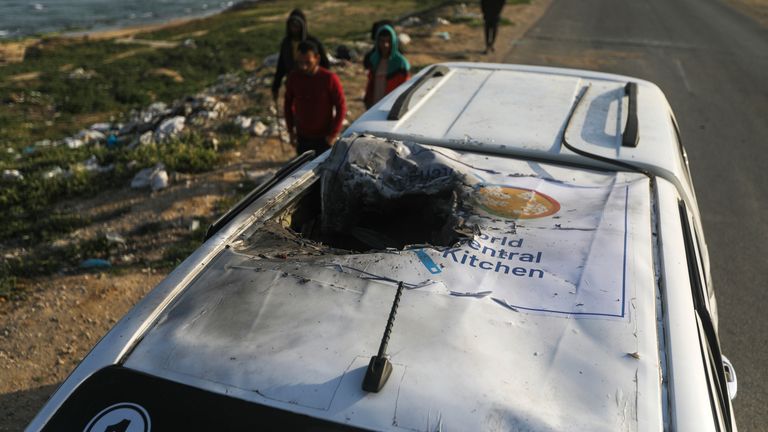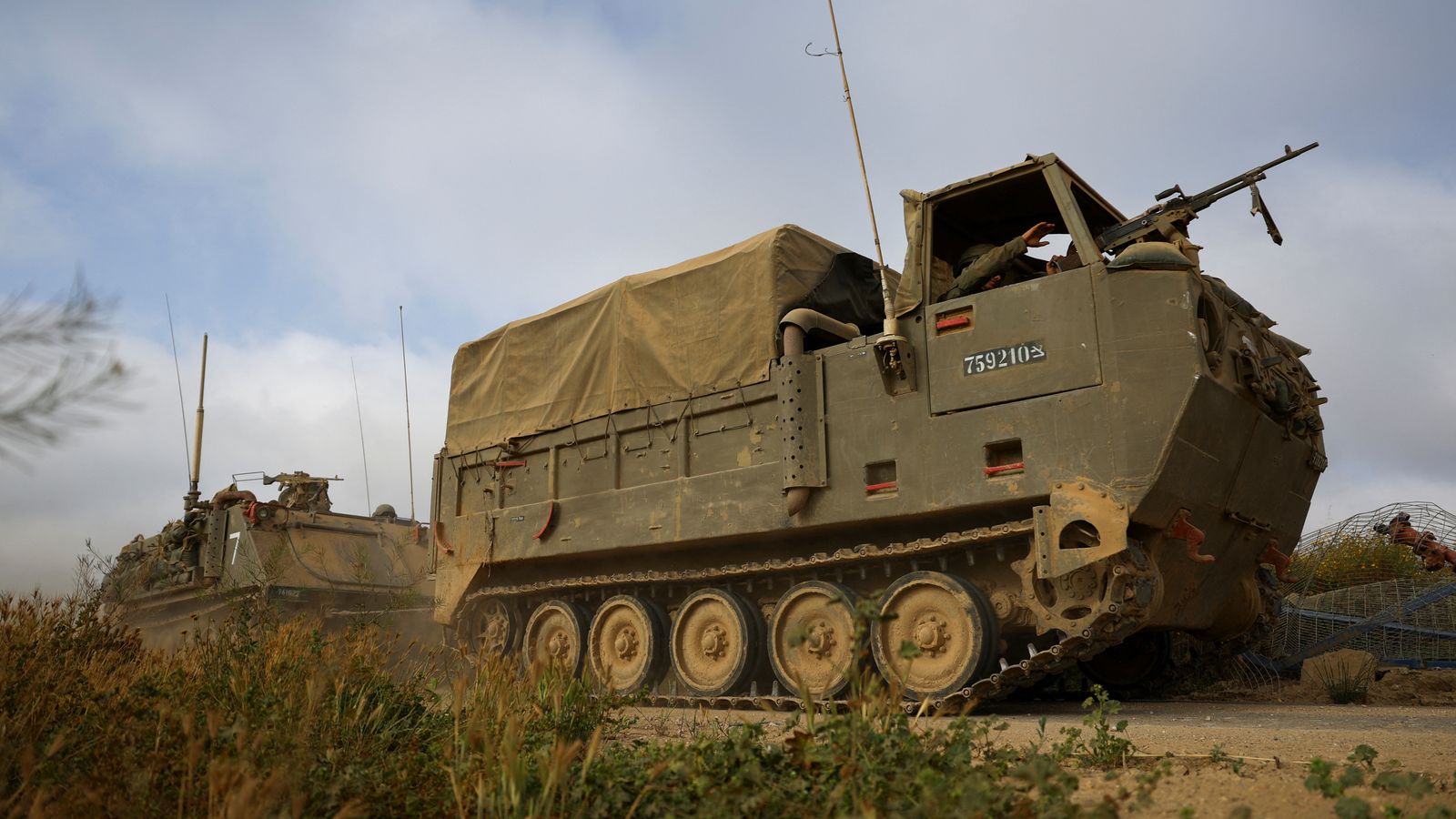
The UK has a “duty” to support Israel “in her hour of need” despite the killing of three British aid workers in Gaza, a government minister has said.
A row has been raging over whether the UK should continue to sell arms to the country after the airstrike last week, with questions over whether Israel has breached international law through its actions in the conflict.
Opposition parties and a raft of legal experts have demanded the government publishes the legal advice it has been given on whether sales should continue to ensure the UK is not complicit in any law-breaking activities.
Follow live: Pressure builds to publish Israel legal advice
The prime minister’s official spokesperson said on Monday that the government would be as transparent as possible in explaining decisions around arms exports to Israel.
But they re-emphasised the “long-standing convention” that legal advice of this type was not routinely published.
The latest comments come as Foreign Secretary Lord Cameron heads to Washington DC, where he is likely to face questions around the current UK framework.
Rishi Sunak’s spokesperson also denied reports that there were splits in the cabinet over whether to publish the legal advice or not.
Speaking to Sky News’ Breakfast with Kay Burley, Work and Pensions Secretary Mel Stride said there was “a long convention under governments of all different colours that that advice is not made public”, and there were no plans to publish it.
Pushed over whether the government was comfortable supporting Israel after the death of the British aid workers, the minister said: “We are very uncomfortable with what happened. We are appalled with what happened. The prime minister has spoken to the Israeli prime minister about that.
“We are also very uncomfortable about the amount of aid that’s getting into Israel, which is why we’ve been working very hard to increase that.”
He added: “We should be supporting [Israel], particularly in her hour of need… however, that is not an unconditional support.
“We expect Israel not to do the kinds of things that happened with the aid workers. And we have made very clear that we are appalled by what happened there.
“We do expect – and the Americans do, as well as others – that aid will be going into Gaza, where we are beginning to move into a famine situation, which we are very concerned about. So it has [to] be a balanced approach.”
On the legal advice, Mr Stride sought to allay fears by saying the UK had “robust processes” in place to make sure the law was being followed, and it was being “constantly reviewed”.
But while he would not commit to publishing the advice, he said: “As things stand right at this particular moment in time, the advice… is that there shouldn’t be any change in the current arrangements.”
Labour leader Sir Keir Starmer reiterated his party’s call for the advice to be made public.
Speaking to broadcasters, he said: “The government’s got advice on [the legality of arms sales to Israel] and so what the government should do is to publish that legal advice, or at least a summary of it.
“They’ve… published summaries before in response to the Houthi attacks. So publish [this] so we can all see it. And the appropriate action can then be taken in relation to the sale of arms.”
Liberal Democrat leader Sir Ed Davey said his party already believed there should be “an arms embargo on the sale of arms to Israel based on what we already know” about how the conflict has played out.
He told reporters: “We would support the publication of the legal advice, but it is already clear and has been for some time in the view of the Liberal Democrats that we shouldn’t be giving arms to Israel to fight the war in Gaza.
“We want an immediate bilateral ceasefire to end the killing so we can get the aid in, get the hostages released and get on the path to a proper peace process, to get that two-state solution, so selling arms doesn’t help that.”
Sunday marked six months since the attacks in Israel by Hamas that sparked the conflict and saw 1,200 people killed. There are still 129 hostages unaccounted for, with at least 34 presumed dead.
Since then, more than 33,000 people have been killed in Gaza and over 75,000 injured during the Israeli response, according to the Hamas-run health ministry.














